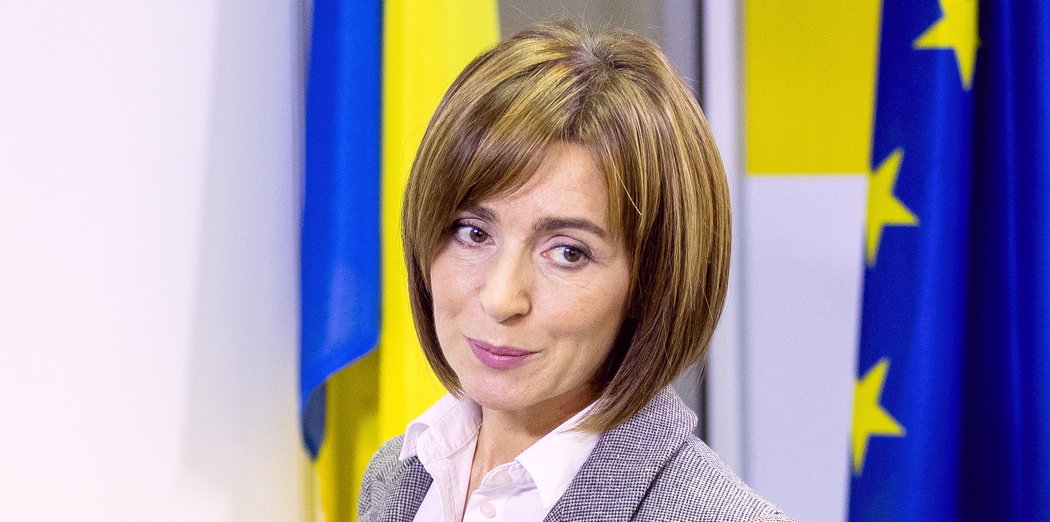
This will be the first meeting between the presidents of the two countries in the last five years. During her visit Sandu will also meet with the Prime Minister Denis Shmygal and the Verkhovna Rada Speaker Dmytro Razumkov.
According to Sandu, the main purpose of the visit is to resume relations between the two countries at the level of presidents, which in fact were non-existent during the presidency of her predecessor, Igor Dodon.
In her interview with the Deutche Welle, the President of Moldova named specific issues she was intended to discuss with her Ukrainian counterpart: the security issues in the region and delimitation of the borders, the issues of European integration of the two countries and the reforms both countries have to implement to move closer to the EU, as well as the ecology matters of the Dniester River.
What exactly does Chisinau expect from Kyiv? First of all, it is the final solution to the issue of the border delimitation between the two states, especially in the Transnistrian section. Linked to this is Moldova’s retaking control over its eastern border, which is necessary to solve the problem of smuggling through the uncontrolled border section of Moldova. During Petro Poroshenko’s presidency, Ukraine opened two border checkpoints where Moldovan and Ukrainian border guards were to be on duty together, but these two sections were about all then. Stopping smuggling in the region is important for the economic development of both countries and for security in the region. Such actions will result in cutting off another source of funding to the separatist regime in Tiraspol.
Another important issue that has become even more topical this year is the problem of the Dniester. Moldova accuses Ukraine of restricting the flow of water from its reservoirs to the river, which, along with the drought, has led to a drop in the Dniester level to a record low level of 8 meters. Given that the Dniester is the main source of water for the country, and that last year Moldova experienced the worst drought in recent years, this caused huge damage to the agricultural sector of the republic’s economy.
Another question that will most likely be discussed during Maya Sandu’s meeting with the Ukrainian leaders is the fate of Moldovan state enterprises located in Ukraine. In recent years, Moldova has lost control over some of them under very dubious circumstances. The last case occurred a few days ago, on January 4, when the Moldovan side lost the assets of two state-owned mining companies. This relates to the quarry for the extraction of crushed stone in Pervomaisk and the gravel and sand quarry in Chernivtsi. According to the State Property Agency of the Republic of Moldova, the managers of these enterprises purposefully brought the situation to a dire state and did not extend the license so that the third parties could gain access to the company’s assets. The similar cases occurred in previous years with the sanatoriums and camp sites belonging to Moldova, but located in Odessa region. Chisinau wants to launch an investigation and it will count on cooperation of Kyiv.
In fact, there are many issues to consider during Maya Sandu’s visit to Kyiv. The topics outlined above are just some of them. We must also realize that they will not be resolved in one day, so the main goal is to initiate a dialogue where it needs to be started and to develop it where it already exists.
Diplomatic relations between our countries from the very beginning have been complicated and even, in some ways, contradictory. But, nevertheless, in recent years, they have developed in a very positive direction, even if the statements of some politicians made them slow down at various levels of government relations. But the main thing is that Chisinau and Kyiv realize that both sides will benefit from the establishment of good neighborly relations between the two states.
Moscow realizes it very well too. Once it became known when the Moldovan president visits Ukraine, the pro-Russian political forces and related media began to frighten their audiences with the creation of the Bucharest-Chisinau-Kyiv axis and a new armed conflict in the region. Such ideas were voiced by the former President of Moldova Igor Dodon during his trip to Moscow. The Kremlin is aware that building relations between Moldova and its neighbors will mean the collapse of the “divide and rule” policy used by Moscow in recent years to dominate the region.